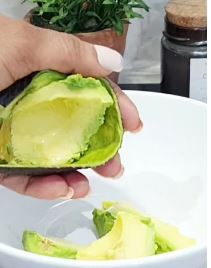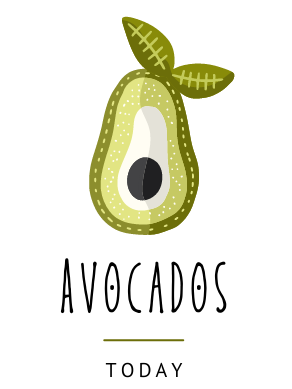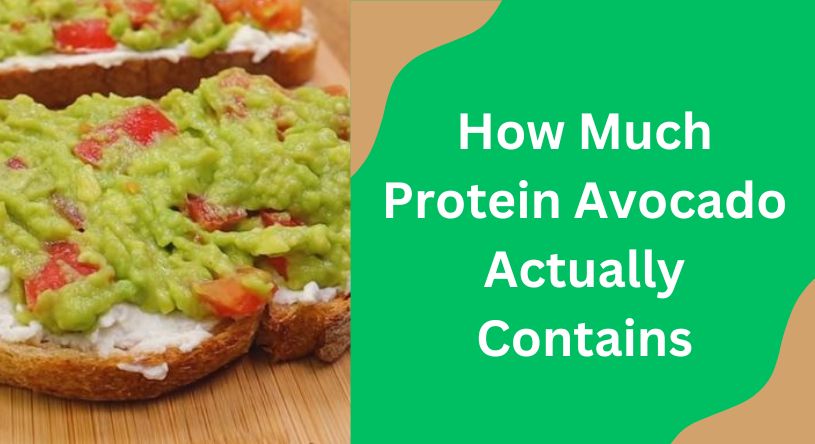When you pick up an avocado at the store, you may not think of it as a high-protein food source. But you may be wondering, “How much protein avocado actually contains?” The answer is a decent amount!
Each medium avocado provides around 4-5 grams of protein. While this isn’t an enormous amount compared to animal products or beans, those protein grams still count towards your daily needs. In fact, the protein in just half an avocado makes up about 4% of the recommended daily intake.
Along with a respectable dose of protein for a fruit, avocados offer additional nutritional benefits like healthy fats, fiber, vitamins and minerals. So while you may not think of them as a traditional protein source, avocados can be a great way to add valuable nutrition – including some grams of protein – to your diet.
Now that you know the basics on “how much protein avocado” has, let’s explore some additional details and nutrition facts. Protein is just one of the many solid reasons to enjoy avocados. This green superfruit has rightfully earned its nutritional stardom!
How Much Protein Avocado Contains?
Avocados have become the darling of the produce aisle in recent years. But does this green goddess really deserve the hype? When looking at “how much protein avocado” has, as well as its other nutritional benefits, the answer seems to be a resounding yes!
First, avocados do contain a decent amount of protein – about 3-4 grams per medium fruit [1]. That’s not an enormous amount compared to meats or beans, but still significant and can help meet daily protein needs.
Each 1-ounce serving of avocado provides about 1 gram of satiating protein. So go ahead and enjoy it on sandwiches, salads and more!

In addition to protein, avocados offer a bonanza of other nutrients that are great for your health. Some key “avocado nutrition facts” include:
- Heart-healthy fats – Avocados provide monounsaturated fats that can improve cholesterol levels.
- Fiber – A medium avocado delivers over 10 grams of digestion-friendly fiber.
- Folate – Avocados are among the best sources of folate, with nearly half your RDI per half fruit.
- Potassium – With more potassium than a banana, avocados help control blood pressure.
- Antioxidants like lutein that support eye and overall health.
- Vitamins K, C, E and B6, plus minerals like copper and iron.
When it comes to “how many calories in an avocado“, a medium-size fruit clocks in around 240 calories [3]. Given all the nutritional positives, this seems a fair calorie tradeoff, as long as portions are controlled.
Per ounce, avocados deliver about 50 calories, 4 grams of fat, 2 grams of fiber and significant vitamins/minerals [5]. This shows their impressive nutrient density.
So while avocados are not the lowest-calorie food, their many benefits seem to outweigh any drawbacks. Enjoy them in moderation along with an overall balanced diet and active lifestyle.
Discover the ultimate vaping experience at our store, where we proudly offer the best selection of elf bar products at unbeatable prices. Our ELF BAR collection is designed for both seasoned vapers and newcomers alike, ensuring quality and satisfaction with every puff. Explore our range today and elevate your vaping journey with flavorful options that cater to your unique taste. Don’t miss out on these exceptional deals!
Protein In One Avocado
When looking at the protein in an avocado, a medium-sized fruit contains approximately 4-5 grams [1]. More specifically:
- Protein in 100g of avocado: 2 grams [6]
- Protein in an avocado half: 2-3 grams
- Protein in a whole avocado: 4-5 grams
So while avocados are not a high-protein food, they can contribute valuable grams of this nutrient. Adding just half an avocado to your meal provides protein, healthy fats, fiber and more.
Is 1 or 2 Avocados a Day Better?
Moderation is key when it comes to avocados. Most experts recommend 1-2 avocados per day as part of a balanced diet [7]. Reasons to stick to this serving size:
- Providing healthy fats and nutrition, but too much could lead to weight gain.
- Each avocado has about 250 calories, so portions must be managed.
- The high fiber may cause gastrointestinal issues if over-consumed.
Aim for 1 medium avocado daily, with an occasional second for additional benefits. Or, split one avocado between multiple meals. This ensures you gain their nutritious goodness without going overboard.
Nutrition Facts: 1 Small Avocado
Wondering about “1 small avocado calories and nutrition”? Here are the stats [8]:
- Calories: 167
- Fat: 15 grams
- Carbs: 9 grams
- Fiber: 5 grams
- Protein: 2 grams
- Vitamin C: 12% RDI
- Folate: 14% RDI
- Vitamin K: 17% RDI
Per small avocado, you’ll get healthy fats, dietary fiber, over a dozen essential vitamins and minerals, plus a bit of protein. That’s an impressive nutrient package in just one soft, creamy fruit!
Protein in Avocados According To Size

- A small avocado (around 80g) contains approximately 1.5g of protein
- A medium avocado (around 130g) contains approximately 2.5g of protein
- A large avocado (around 200g) contains approximately 4g of protein
To summarize:
- Small avocado: 1.5g protein
- Medium avocado: 2.5g protein
- Large avocado: 4g protein
Even though avocados are not a protein-dense food, they can still contribute valuable protein in addition to their other nutritional benefits. Adding just half an avocado to a meal provides fiber, healthy fats, vitamins, minerals and about 1-2 grams of protein.
Protein In Avocado vs Egg
Here is a comparison of the protein content in avocados versus eggs:
- Avocado: A medium avocado (200g) contains about 4g of protein.
- Egg: A large egg (50g) contains about 6g of protein.
So an egg contains roughly 50% more protein than an avocado of comparable size.
While eggs may have more total protein, let’s not underestimate the mighty avocado. Even though eggs beat out avocados in the protein department, these green dynamos have some additional nutritious benefits up their sleeves.
For one, avocados offer those heart-healthy monounsaturated fats, while eggs are high in cholesterol Plus, avocados are loaded with belly-filling fiber, which eggs just don’t provide.
And don’t forget all those antioxidants like lutein and zeaxanthin that give avocados their nutritional edge. You won’t find those gems in an omelet.

So while eggs can pack more of a protein punch, avocados are still no nutritional lightweight. With all their wholesome goodness and moderate protein power, don’t count these green beauties out! In the world of balanced eating, avocados and eggs both have valuable roles to play.
- Avocados provide heart-healthy monounsaturated fats, while eggs are high in cholesterol.
- Avocados have about 12g of fiber per medium fruit, eggs have minimal fiber.
- Avocados contain antioxidants like lutein and zeaxanthin, which eggs do not provide.
- Avocados offer potassium, folate and various vitamins and minerals.
So while eggs contain more total protein, avocados can still be a nutritious addition to one’s diet, providing a moderate protein amount along with healthy fats, fiber, and micronutrients. Including both in a balanced diet can complement their respective nutritional profiles.
The Takeaway
Avocados deliver a bonanza of nutritional benefits, especially healthy fats, fiber, vitamins, minerals and even some protein. Enjoying them in moderation as part of an overall balanced diet can provide great health perks.
Just watch portions and know “how much protein avocado” and other nutrients you’re getting. With the right approach, avocados deserve their superfood status.

